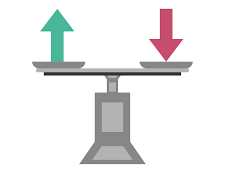
Developing a financial plan requires taking a number of specific measures. The following are some extra plan aspects and procedures that should be included in addition to the calculations of your net worth, the determination of your cash flow, and the establishment of your financial goals, as that was previously said.
Do It Yourself or Seek the Assistance of a Professional
You need to make a decision on whether you will produce your financial plan on your own or with the assistance of a certified financial planner. Although it is possible to construct a financial plan on your own, it is recommended that you get the assistance of a financial professional to ensure that your plan addresses all of the necessary aspects.
Create an Emergency Cash Reserve Fund.
When you find yourself without income as a result of unforeseen circumstances, you should begin putting aside sufficient funds in a liquid account to meet all of your costs for a period of at least six months (ideally for a period of twelve months), based on what your cash flow allows.
Make a plan to spend less money and pay off your debt.
If you have debt, the sooner and more efficiently you are able to pay it off, the better it will be for the growth of your savings, the improvement of your standard of living, and the accomplishment of particular financial goals.
You should make it a habit to reduce your spending whenever it is possible to do so in order to maximise your savings. Additionally, it is important to keep track of the expenses that you are aware you will incur, such as taxes, in order to ensure that you always pay your commitments on time.
Deal with the Possible Dangers
It is possible for your financial well-being to be negatively impacted by unforeseen events such as accidents, health problems, or the passing of loved ones. Make it a priority to set in place the right insurance coverage that will safeguard your financial stability in the event that something like this occurs. Household, property, health, automobile, disability, personal liability, and life insurance are all examples of coverage that may fall under this category.
Make a plan to invest.
By participating in a retirement plan at your place of employment, you can have contributions deducted from your paycheck automatically. To get the most out of your tax-advantaged investments, you should also consider opening a personal IRA if and when your income permits it.
You should also think about how you might allot any additional income that is available to you to a taxable investment account that has the potential to increase your net worth over time. Your plan for investing ought to take into consideration the level of risk you are willing to take on and the demands you will have in the future.
Include a Tax Planning Strategy
Take use of tax deductions, tax credits, tax loss harvesting, and any other options that are lawfully accessible to taxpayers in order to achieve the objective of lowering your income taxes.
Have a look at an estate plan.
Having an estate plan in place is essential in order to ensure that your heirs are provided for and protected in the event of your passing. Your current life stage, as well as whether or not you are married, have children, or have other legacy ambitions, will determine the specifics of your situation.
Your financial plan should be monitored and adjusted.
You should review your plan at least once a year (either on your own or with the assistance of a financial professional), and you should do so more frequently if your financial status is affected by a change in circumstances. Adjust it as necessary to ensure that it continues to function in an efficient and effective manner.
So, what exactly is the point of having a financial plan?
You should be able to attain long-term financial goals with the assistance of a financial plan, such as sending your children to college, purchasing a larger home, leaving a legacy, or enjoying a happy retirement. A financial plan should help you spend your money in the most effective way possible.




